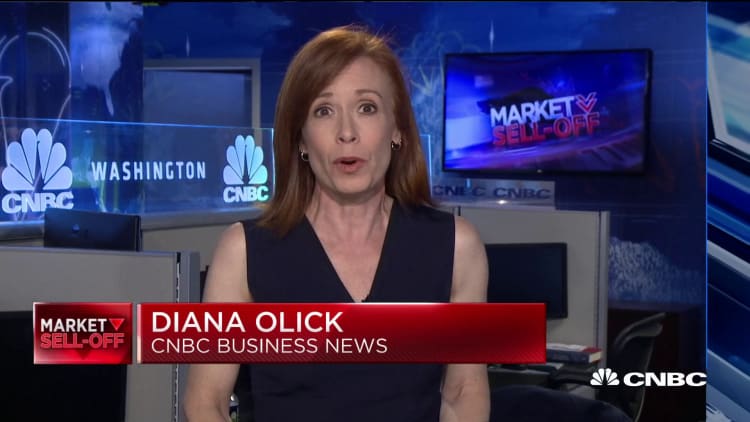The coronavirus pandemic is continuing its assault on the U.S. economy, forcing businesses to close, lay off workers or reduce their hours.
Many Americans may need fast cash, beyond what can be generated by strict budgeting.
But where to turn?
Here are some of the possibilities, according to financial advisors.
Unemployment insurance
"File for unemployment benefits immediately," said David Haas, certified financial planner and owner of Cereus Financial Advisors in Franklin Lakes, New Jersey. "There is no stigma here."
Not everyone, however, is eligible to collect unemployment insurance. Those who get benefits only replace about a third of their prior weekly wages, on average, and for a limited period of time. This varies broadly by state.
Try to find another job
Some high-demand businesses like supermarkets and pharmacies are hiring workers. Quickly see if you can find another job, even if you hope or plan to return to your original job when the economy eventually rebounds, Haas said.
Some states, like New Jersey, have created job websites to help.
Taxable accounts
Taxable accounts — checking, savings, investment accounts and certificates of deposit — are likely the next-best place from which to draw cash.
When it comes to taxable investments, consider selling fixed income (like bonds) and cash-equivalents (such as money market funds) before stocks, which are likely trading at a steep discount given the recent market selloff.
This would make your portfolio riskier, but would give your stocks time to recover, said Stephen Rischall, CFP, co-founder of Navalign Wealth Partners in Los Angeles.
Those who sell investments with a net gain will have to pay capital-gains taxes. Those who sell at a loss could benefit from tax-loss harvesting.
Home equity
Homeowners can tap a home-equity line of credit or reverse mortgage, or consider cash-out mortgage refinancing, especially with interest rates so low, said Jeffrey Levine, CFP, director of advanced planning at Buckingham Wealth Partners in Long Island, New York.
Cash-out refinancing allows a home owner to swap out an existing mortgage for a larger loan — and pocket the difference tax-free. Lenders generally require homeowners to retain at least 20% equity in their home.
Let's say an individual has a $300,000 home and still owes $100,000 on the mortgage. This person could potentially free up $140,000 by doing a cash-out refinance, according to Bankrate.

This, of course, could drag out loan repayment for decades.
A reverse mortgage is only available to those age 62 and older. It's a type of non-recourse loan, meaning borrowers would never owe more than the value of their home. There are risks — for example, similar to a traditional mortgage, lenders could foreclose on a home if borrowers don't keep current with property tax and maintenance.
Other loans
Investors can use margin loans to borrow against the value of their taxable investments. This allows them avoid selling investments for a loss or incurring capital gains tax.
Investors can generally borrow up to half the amount of their account's value. However, they should avoid borrowing the full amount, said Charlie Fitzgerald, CFP, principal of Moisand Fitzgerald Tamayo in Orlando, Florida.
That would help avoid a "margin call," which could push a brokerage to sell some of your investments if they fall in value.
More from Personal Finance
Stashing cash? Savings interest rates sink
How to make your money work harder in the coronavirus crash
These banks are offering coronavirus financial aid
Banks may also give signature loans (with no collateral) to long-standing customers, Fitzgerald said. Some customers with good credit may also be able to secure a bank loan with collateral like a car or other asset, he said.
Refinancing higher-interest-rate debt — and subsequently lowering your expenses — is also a way to free up cash, said Nicholas Hofer, CFP, president of Boston Family Advisors in Boston.
Life insurance
People with cash-value life insurance (such as whole life or universal life) can get a tax-free loan by borrowing against the cash value in their policy. This could be risky, though — loans that get too big may eventually cause a policy to "lapse," causing you to lose your insurance and potentially have a large income-tax liability.
The cash value could also serve as collateral for a bank loan, Haas said.
Retirement accounts
Americans can withdraw money from individual retirement accounts or workplace savings plans like a 401(k).
This strategy has many potential downsides — namely, selling investments that are reduced in value, forgoing tax-free investment growth, incurring tax penalties and raiding an account earmarked for retirement.
IRA and 401(k) investors would pay a 10% tax penalty (in addition to income tax) for making a withdrawal if they're not at least 59½ years old. Roth IRA investors can withdraw their account contributions penalty- and income-tax free.

401(k) investors have some additional limitations. Some employers, for example, restrict who can take 401(k) distributions, meaning investors may only be able to access their money via a loan or hardship distribution.
Both could have adverse tax consequences, and are only available if the person is still employed.
Congress is weighing a bill that would allow 401(k) and IRA savers adversely affected by the coronavirus to withdraw up to $100,000 penalty-free.
Ask family
Asking for a loan from family members, while potentially uncomfortable, could provide a last-ditch lifeline for some.
"When times are tough, that's part of what family is there for," Levine said. "I think everyone understands this is a very unique time in our history."


